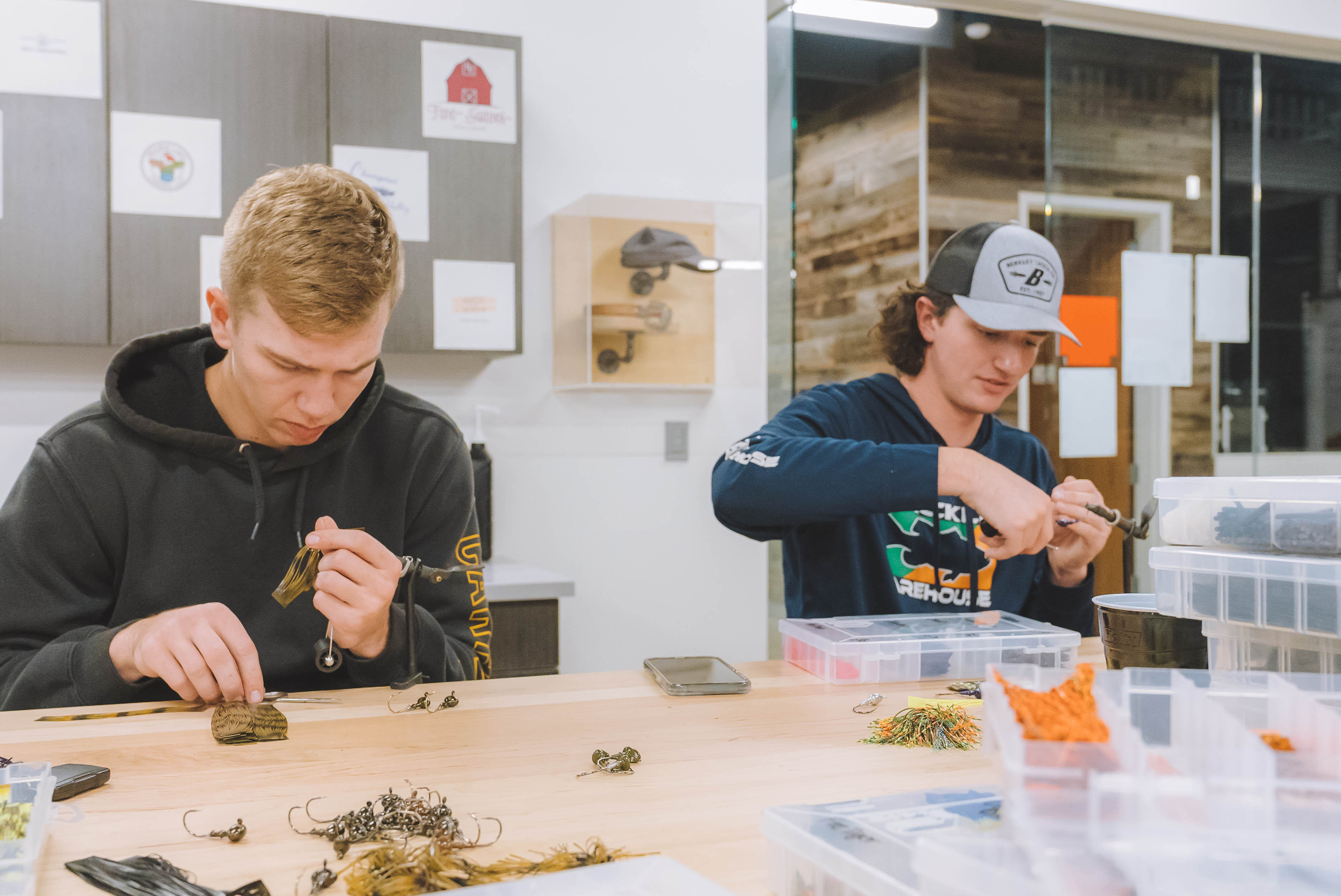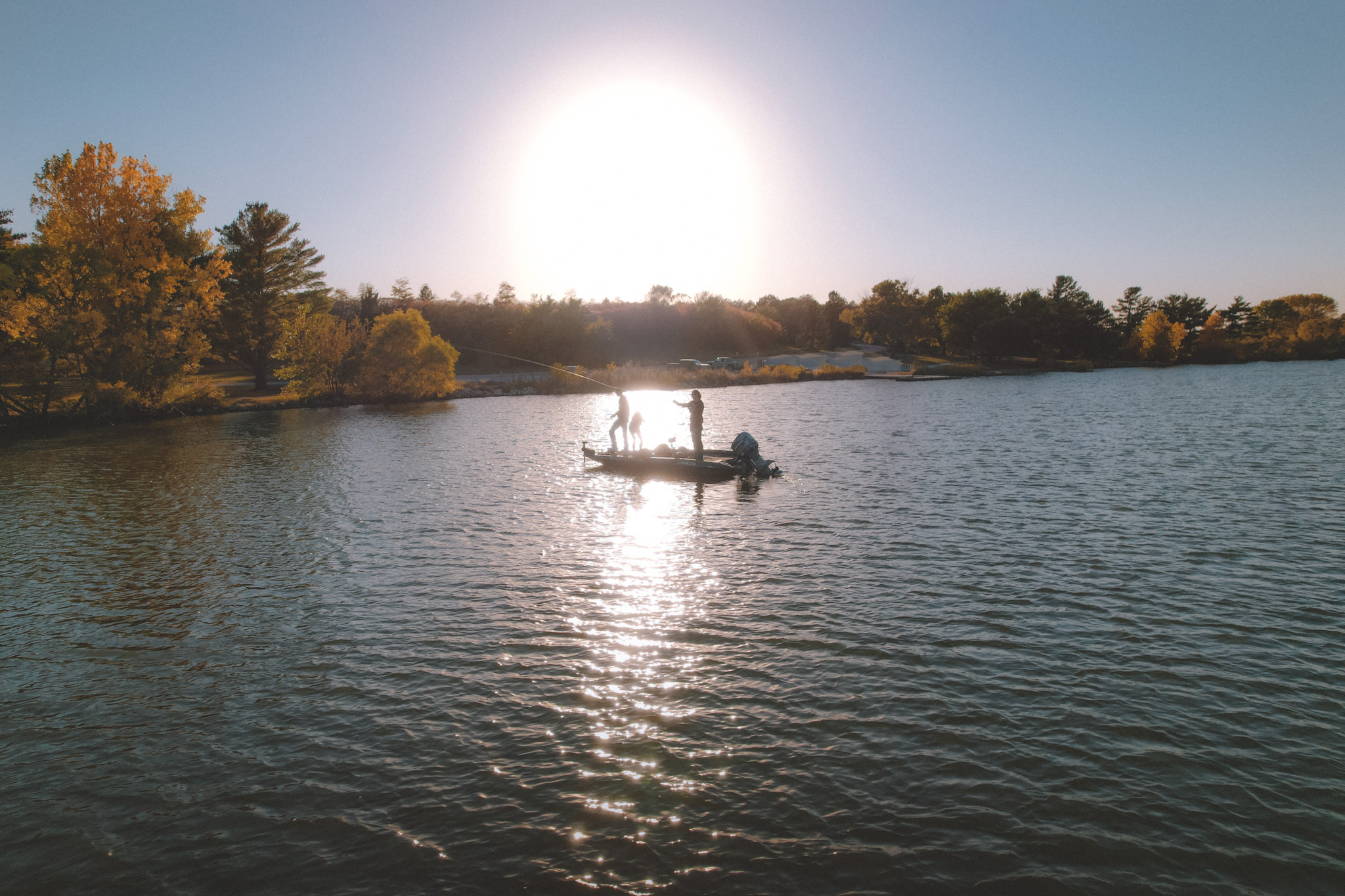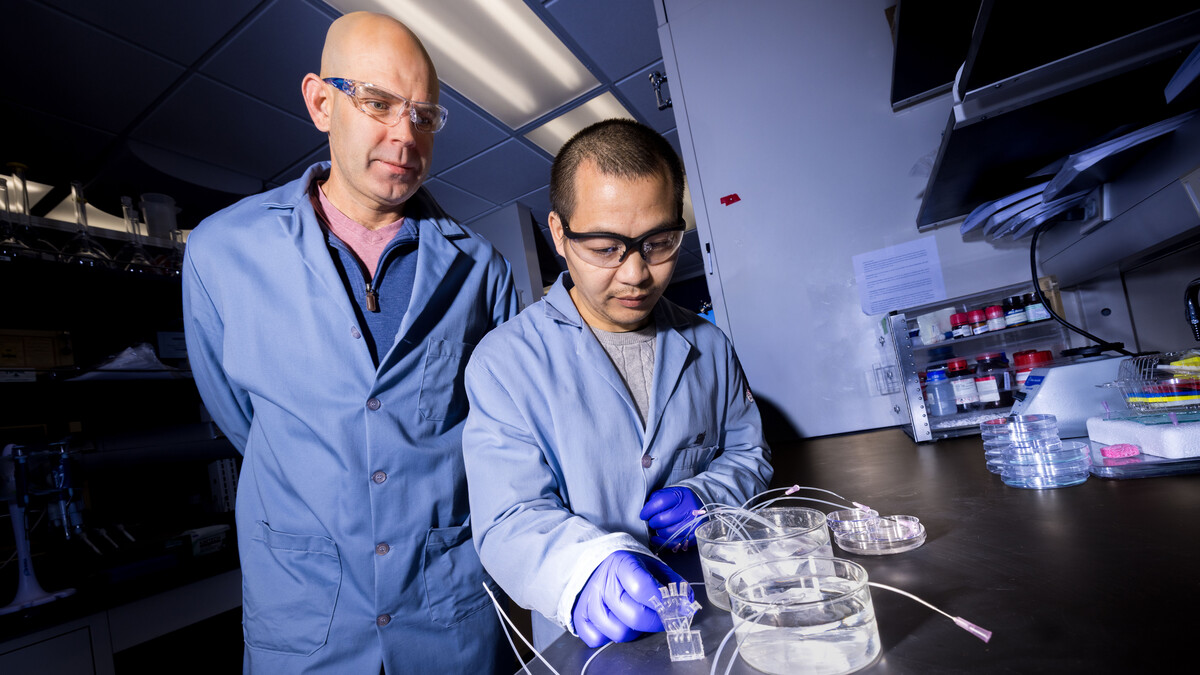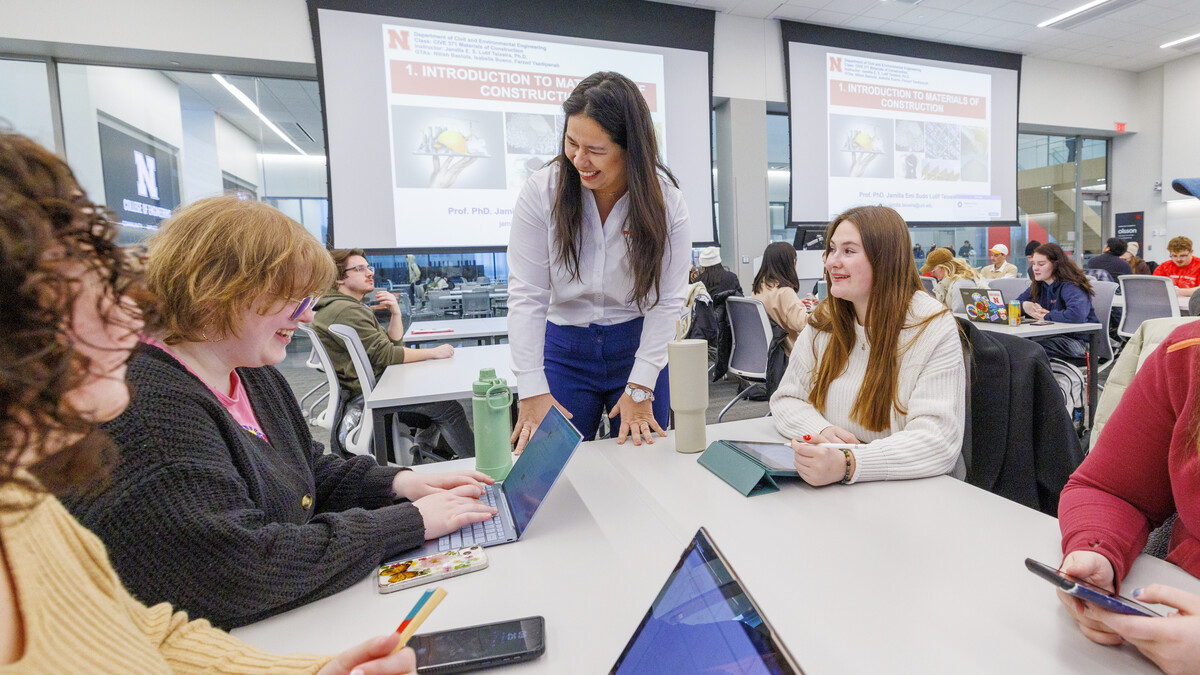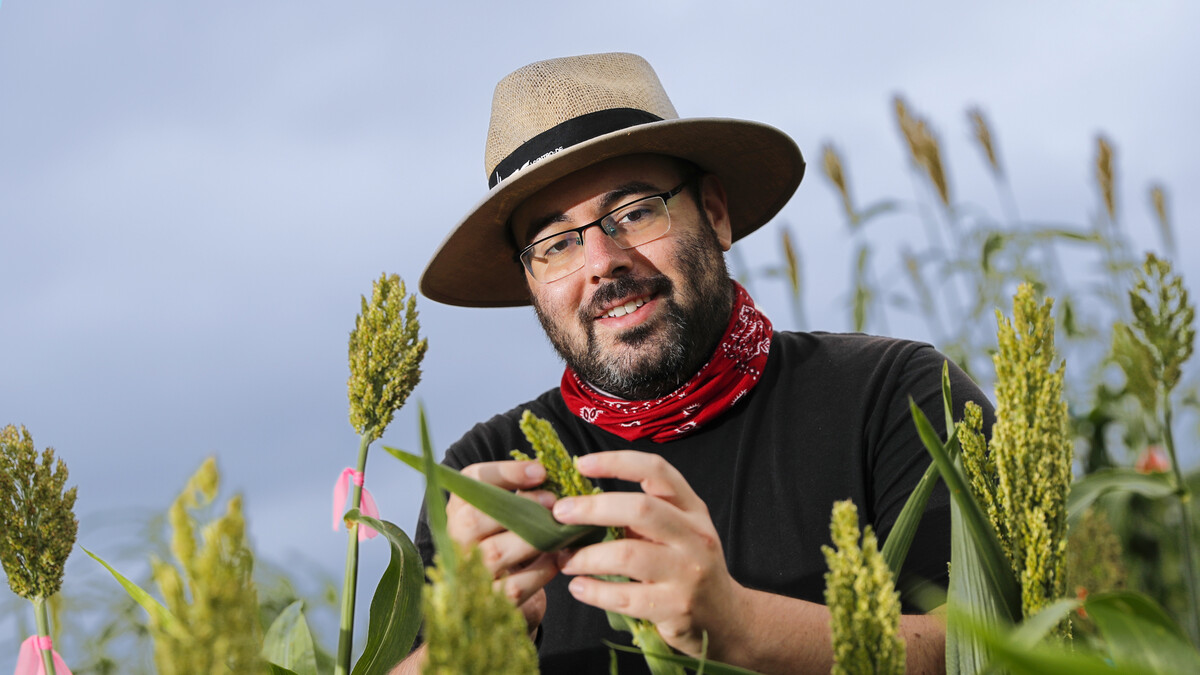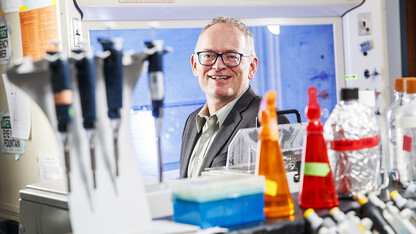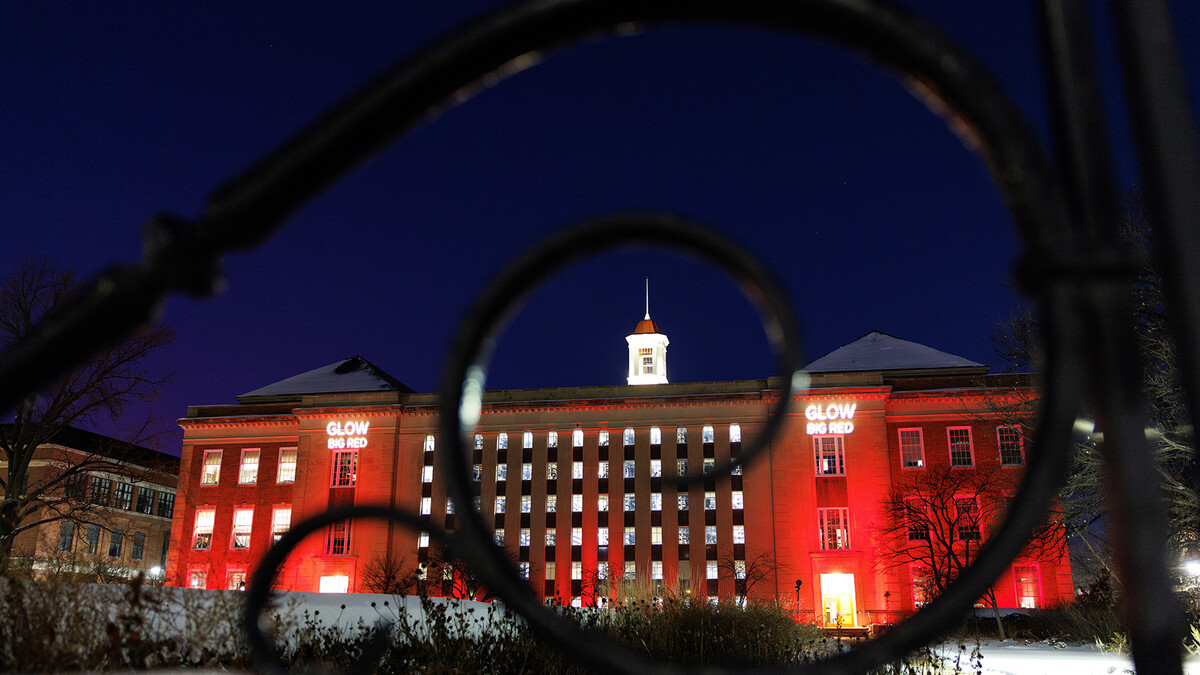
From the time they were old enough to hold a rod, Cade Ludwig and Hunter Suchsland have always loved to fish.
Ludwig and Suchsland, both seniors in the University of Nebraska–Lincoln’s College of Agricultural Sciences and Natural Resources, loved watching their bobbers dancing on the water when they were little boys fishing with their dads. Later, they graduated to keeping an eye on carefully selected lures swirling through a lake.
Their passion led them to identify one major problem — they’ve had to deal with a lot of bad, amateur fishing lures over the years. They addressed this problem in their Engler 275 class, which challenges students to develop a business with $50. They wanted to disrupt the market by creating their own handmade products infused with quality and passion.
Now a year into their business LS Lures, Ludwig and Suchsland continue to grow their enterprise by tying eye-catching color combinations into their lures. To make the lures, they begin by ordering skirt material, hooks and pure lead. First, they put the hooks and weed guard pins in a mold and pour hot, melted lead around the hook. After the hooks have cooled and hardened, they are heated a bit more and dipped in a powder coat paint to make them tough. Then, Ludwig and Suchsland decide on a unique color combination for the skirt, tie them and put on a weed guard. Finally, the lures are packaged and are sent to fishermen in Nebraska and 11 other states.
Ludwig and Suchsland have already begun to differentiate themselves from competitors.
“We started off just making what other people were making and stuff just to get sales using staple colors because we didn’t want to take the risk,” said Suchsland, a fisheries and wildlife major. “Now we can kind of afford to have some of the staple colors in the market and try to do our own stuff to where we’re different.”
They use Instagram to showcase their lures with unique color combinations and memorable names — one lure is shades of green and blue, a color combination they call “swamp donk”; another is a black and glittery gold combo they call “gold digger.”
Their differentiation has snagged them customers on the East Coast, West Coast, Gulf Coast and more, along with the Husker Bass team and social media influencers. Ludwig and Suchsland’s membership in the Husker Bass team allows them to see the fruits of their labor firsthand through their team’s catches.
While they’ve been successful, LS Lures didn’t grow overnight. Ludwig and Suchsland credit Dave Lambe, lead instructor for the Engler Agribusiness Entrepreneurship Program, and Brennan Costello, chief business relations officer for the Engler program, for much of their success.
“Dave made us realize that sometimes we can’t just focus on making the lures; we’ve got to focus on the company as a whole — actually working on the company, not for it,” said Ludwig, an agronomy major.
And focus on the company and its growth they did. Last spring, the duo participated in the New Venture Competition, which allows students to pitch their student-created, -managed and -owned business plan to judges with the chance to win between $7,500 and $25,000 from the Husker Venture Fund. Through their pitch, Ludwig and Suchsland won the grand prize of $25,000.
Also last spring, the pair applied for the Engler Fellow Experience, which supports aspiring student entrepreneurs by awarding them a $5,000 enterprise grant to cover personal, academic and business expenses. In the summer, the fellows were able to learn business strategies, including customer discovery, market research and defining the purpose of their business. In October, LS Lures hit the shelves of Scheel’s in Lincoln.
“I would never have imagined when we started that we would be selling lures to Scheel’s within a year,” Ludwig said. “That’s pretty crazy.”

With great success also comes great learning experiences. Aside from the countless times Ludwig and Suchsland have accidentally dripped hot lead on themselves, they also experienced the learning curve of figuring out which materials would work best and how to run their business efficiently. When LS Lures first began making lures, they didn’t powder coat or harden them, which led to the paint chipping off. They used rubber bands for the skirt material, which they learned deteriorate quickly. By hand-tying the lures, powder coating them and using a different skirt material, they were able to increase the lures’ durability and longevity.
Not only have they improved their product over time, they’ve improved their business.
“It was just a lot of little things, like setbacks with orders and getting them out and doing things wrong and stuff, where there’s not any major ‘this absolutely tanked’ because it’s a learning curve,” Suchsland said. “But just doing things and figuring out the best way to do it by messing it up 15 times, or however many times it takes, is how we’re getting it exactly how we want it.”
With lots of time on the water, and quality and care tied into every lure, Ludwig and Suchland realize that hard work pays off. Without the late nights of working on their business or the Engler Agribusiness Entrepreneurship Program, the students would have never become best friends in addition to business partners.
“Hunter and I met first day of freshman orientation and besides that, we never really talked a ton,” Ludwig said. “We messaged each other here and there about how hunting and fishing had been going, but they kind of brought us back together, and now he’s like my best friend. Without Engler, nothing would have happened.”
This strong friendship and deep dedication to creating quality hand-made lures has allowed two lifelong fishermen to turn their passion into something to help others reel in success.
